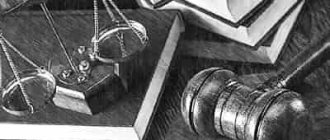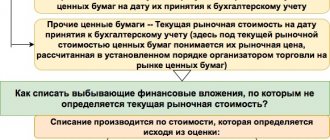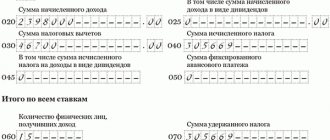We submit an application to appeal the decision of the tax service to the court of first instance
What are the deadlines for appealing a tax authority’s decision in an arbitration court?
What should an application to the court look like to invalidate the decision of the tax authority on an audit?
Technical details of the application
What documents should be attached to the application to the arbitration court?
Results
1st sample: appeal against the decision of the tax authority
Other options for the name of the document may be: an appeal against the decision of the tax inspectorate or an appeal to the tax office.
In any case, we are talking about the same thing. An appeal (AJ) is a person’s appeal to the tax authority with a request to appeal the decision of the tax authorities to prosecute for committing a tax offense or a decision to refuse such prosecution, which was made under Art. 101 NK. In this case, two conditions must be met:
- in the opinion of the person, the appealed decision violates his rights;
- it has not entered into force.
Now about where to write a complaint against the tax inspectorate.
As such, the appeal takes place to a higher tax authority (VNO), but under clause 1 of Art. 139.1 of the Tax Code, a complaint to a higher tax authority is submitted through the authority whose decision is being appealed, since it is from there that it (with all attached materials) is transferred to the VNO within three working days (from the date of receipt). Thus, direct filing of a complaint with a higher tax authority is not possible.
Receipt of the tax bill for the Federal Tax Service means that its decision does not become valid, therefore, a demand for payment of tax (penalties, fines) on the appealed decision is not made.
Above the Federal Tax Service are the Federal Tax Service Directorates for the constituent entities of the Russian Federation. Above these departments and interregional Federal Tax Service Inspectors is the Federal Tax Service, whose decisions, according to paragraph 4 of Art. 139.1 of the Tax Code can only be challenged in court.
Right to appeal
The actions and decisions of tax authorities and their officials often do not satisfy the taxpayer and are often illegal. Therefore, the right to appeal acts of tax authorities, actions or inactions of their officials becomes the main guarantee of respect for the rights and legitimate interests of taxpayers.
So, according to Art. 137 of the Tax Code of the Russian Federation, every taxpayer or tax agent has the right to appeal against acts of tax authorities of a non-regulatory nature, actions or inactions of their officials, if, in the opinion of the taxpayer or tax agent, such acts, actions or inactions violate their rights.
Regulatory legal acts of tax authorities can be appealed in the manner prescribed by federal legislation.
The taxpayer has the right to choose where to complain about, in his opinion, unlawful actions and decisions of tax inspectors:
1) to a higher tax authority (higher official);
2) to court (Articles 137 and 138 of the Tax Code of the Russian Federation provide for the right of the taxpayer to judicially appeal the act of the tax authority).
It should be especially noted that filing a complaint with a higher tax authority (superior official) does not exclude the right to simultaneous or subsequent filing of a similar complaint with the court.
When interpreting Art. 137-138 of the Tax Code of the Russian Federation, it should be taken into account that the concept of “act” is used in them in a different meaning than in Art. 100, 101.1 (clause 1) of the Tax Code of the Russian Federation.
When applying Art. 137 and 138 of the Tax Code of the Russian Federation, it is necessary to proceed from the fact that an act of a non-normative nature, which can be challenged in an arbitration court by presenting a demand for recognition of the act as invalid, is understood as a document of any name (demand, decision, decree, letter, etc.), signed by the head (deputy head) of the tax authority and relating to a specific taxpayer.
In addition, since the Tax Code of the Russian Federation does not establish otherwise, the taxpayer has the right to appeal to the court the requirement to pay tax, penalties and the requirement to pay a tax sanction, regardless of whether he challenged the decision of the tax authority on the basis of which the corresponding requirement was made.
Judicial appeal of acts (including regulations) of tax authorities, actions or inactions of their officials by organizations and individual entrepreneurs is carried out by filing a statement of claim with the arbitration court in accordance with arbitration procedural legislation.
Judicial appeal of acts (including regulations) of tax authorities, actions or inactions of their officials by individuals who are not individual entrepreneurs is carried out by filing a statement of claim in a court of general jurisdiction in accordance with the legislation on appealing to court unlawful actions of state bodies and officials .
If a decision is made on the taxpayer’s complaint in accordance with sub. 2 p. 2 art. 140 of the Tax Code of the Russian Federation, the following must be kept in mind.
An additional inspection is appointed as part of the consideration of the taxpayer’s complaint (Chapter 20 of the Tax Code of the Russian Federation), i.e. resolution of a tax dispute, in contrast to a tax audit carried out as part of tax control (Chapter 14 of the Tax Code of the Russian Federation).
About methods of feeding AF
The necessary documents can be submitted either personally or through a representative as follows:
- via telecommunication channels, through the taxpayer’s personal account;
- by mail;
- in person to the appropriate office or document collection window.
The petition contains:
- Personal data of the applicant (full name plus place of residence for an individual or name plus address for an organization).
- Subject of appeal (decision regarding specific persons - in this case, in other situations this could be actions or inaction of tax officials).
- Name of the offending authority.
- The reasons why the submitter believes that his rights have been violated.
- Final requirements of the applicant.
- Information on how convenient it is to receive an answer based on the results of its consideration: on paper, in electronic form via telecommunication channels or through the taxpayer’s personal account.
Additional data may include telephone, fax numbers, email addresses, and other necessary information. The AJ is supplemented with a maximum of evidence indicating that the complainant is right, and a representative power of attorney is also attached to it (if it is necessary to submit through a representative). The document must be signed by the submitter (his representative).
Actions of the higher department
Response to complaint
A decision made on the need to be held accountable for a crime committed or a decision to refuse to satisfy such a request after an offense has been committed is subject to appeal in the prescribed manner by filing a representative of a commercial organization with an application to review his case.
In a situation where a higher authority, accepting a petition for consideration, begins to review an order approved by a lower authority and ultimately changes it, the amendments made will necessarily come into force from the date of issuance of the relevant order.
An appeal to a court can be carried out only after the relevant decision has been made by a higher structural unit of the Federal Tax Service.
About consideration of AJ
Clause 1 of Art. 140 of the Tax Code allows you to provide additional documents before the claim is resolved (during its consideration). Moreover, it will be necessary to explain why these additions were not provided earlier (clause 4 of Article 140 of the Tax Code). The EIT considers the application without the participation of the person submitting it. Exceptions will be cases where contradictions are identified between information from the audit materials and information received from the taxpayer. In such a development, the petitioner is notified of where and when it will be considered.
The AJ can be withdrawn in whole or in part until it is resolved. Also, the VNO may leave the claim without consideration in whole or in part, there are three reasons for this:
- The order from clause 1 of Art. has been violated. 139.2 of the Tax Code (not in writing, there is no signature of the complainant or his representative, it is not indicated what exactly violated the rights of the complainant).
- The person who filed the claim declared its full or partial withdrawal before its consideration.
- An AJ has already been filed on the same grounds.
AJ is permitted by UNO within a month after receiving it. This period can be extended by a maximum of a month.
There are also three possible outcomes of the appeal:
- The requirements from the complaint are not satisfied.
- The disputed decision of the tax authorities is canceled in whole or in part.
- The cancellation is accompanied by the adoption of a new decision on the case.
The decision on the AJ within three days after its adoption is handed over (sent) to the applicant.
Deadlines and procedure for filing an appeal
Once the tax authority’s decision is in the hands of the applicant, the appeal must be sent within 10 days.
If this deadline is missed, the higher authority will not consider such a complaint. The procedure for submitting the document in question looks something like this:
- After the tax authority receives the document, it must be forwarded with all available attachments and documentation to the senior inspectorate within 3 days.
- You can file an appeal at any time, but no later than this tax decision comes into force. If this happens, then you need to file not an appeal, but a regular one. And if the deadline was missed, you can try to restore your rights.
- The decision on the appeal (unless it was decided to leave it without consideration) must be made within 30 days from the date of receipt of this paper. This period can be extended for another 30 days in accordance with paragraph 6 of Art. 140 Tax Code of the Russian Federation.
- The citizen who filed the application will be notified of the decision made on his complaint. This will happen no later than 3 days from the day the review result is ready. If this does not happen, this is a serious violation on the part of government agencies.
All deadlines are calculated exclusively in working days.
If the appeal was filed on the 1st of the month, on Monday, and is considered within 30 days, then the period will expire 10 days later (since weekends are not counted). An appeal is a good way to declare a violation of your rights. If any action or inaction reflected in the tax decision is non-regulatory, then a correctly filed appeal can change a lot. Take into account the timing, order and other nuances of submitting this document so that at a key moment there is no refusal.
2nd sample: complaint about inaction of the tax inspectorate
Another option for the name of such a complaint could be “Sample complaint about inaction of the tax authority.” In this case, the inaction of inspection officials is being appealed. Moreover, the nuances of the appeal are almost identical to those stated above. True, the review period in this case is 15 days with the possibility of extension for another 15, and not 30, as in the previous version.
How can I appeal
There are several ways to challenge the decisions of the tax authority:
Extrajudicial (pre-trial) appeal
This term means filing objections to a higher tax office.
At the same time, the legislation allows the payer to independently choose the method of protecting his rights: either directly to a higher body of the Federal Tax Service or directly to the court. However, not in all cases it is permissible to independently apply immediately for judicial protection. Thus, with regard to decisions made on the issue of holding an agent accountable for offenses committed in the field of taxation, it is possible to go to court only after considering the issue at a higher tax office. Accordingly, other decisions, such as on the issue of tax refund or offset, can be immediately appealed in court. Read also: What are CRM systems
At the same time, in an official letter, the Federal Tax Service makes it mandatory to have a procedure for pre-trial settlement of issues only for acts adopted after January 1, 2009.
The main advantages of this way of looking at the issue:
- no need to pay state duty;
- stopping the execution of the act until the final verdict is adopted;
- reduced time frame for reviewing materials;
- thorough preparation of the case if the need for a judicial appeal arises in the future.
Among the disadvantages are the following:
- disinterest of a higher authority in canceling decisions of its own structural units;
- suspension of execution is a right, not an obligation;
- The deadline for filing a complaint is short, and if the case is likely to be considered by the Federal Tax Service, there is a possibility that the deadline for judicial protection will be missed.
Appealing decisions of the tax authority in court
This method of protecting themselves is used by payers when all other methods have been exhausted. Conventionally, all disputes can be divided into two large groups:
- cases related to objections to tax acts;
- cases considering the actions (inactions) of civil service employees.
In this case, the review authorities will be:
- arbitration court;
- arbitration court of appeal.
Among the advantages of this method of protection are the following:
- Disinterest (independence) of judges on the issue being considered in a particular case;
- Comprehensiveness and objectivity when examining documents;
- High professionalism of those reviewing materials.
The disadvantages are the following:
- The need to pay a fee;
- Long review period.
4th sample: complaint against the tax inspectorate to the prosecutor's office
The prosecutor's office oversees the correct application of legislation, including tax law. Therefore, you can go there in case of any violations of taxpayers’ rights by the Federal Tax Service. The nuances of such appeals are regulated by Art. 10 Federal Law dated January 17, 1992 No. 2202-1 and Order of the Prosecutor General’s Office of Russia dated January 30, 2013 No. 45.
You need to complain to the prosecutor's office at the location of the Federal Tax Service.
Structurally, the claim includes three elements:
- Heading, which initially indicates information about the prosecutor's office (full name with address, as well as full name and rank of the head). The next will be the applicant’s personal information (his full name, registration address, contacts for feedback). The final data will be the tax office - the violator of your rights.
- Information block: you need to state the essence of the problem as briefly and accurately as possible, describing the events that led to the dispute, the violations that were committed, as well as your request to the prosecutor's office.
- Conclusion. The evidence attached to the application is listed here. These may be audio and video recordings, documents, etc. indicating a violation. Here the appeal is dated and signed.
When drawing up a complaint to the prosecutor's office, you should adhere to a business style and clear wording, without insults or profanity, indicating only true facts.
There are several ways to file a claim:
- by mail - by registered or valuable letter with acknowledgment of delivery or an inventory of the contents, respectively;
- through the box installed in the prosecutor’s office “for citizens’ appeals and applications”;
- to the prosecutor's office. Here, a stamp is affixed to the first and second copies of the complaint, as well as a mark and signature indicating acceptance and assigning an incoming number to the document;
- through the Internet reception of the Prosecutor General's Office.
The prosecutor's office considers incoming claims in the manner and within the time frame established by Order of the Prosecutor General's Office of Russia dated January 30, 2013 No. 45. The usual period for reviewing a claim is 30 days after its registration. If additional verification and study of received materials is not required, they will be sorted out within 15 days. If necessary, the indicated time is extended by the same amount. The person who filed the complaint is notified of the extension.
For the applicant, there are two possible outcomes of the analysis of his appeal: positive and negative. The latter means that, from the point of view of the prosecutor’s office, the Federal Tax Service is right. The taxpayer himself decides whether to agree with this option or not; his disagreement means a further trip to court. A positive scenario means that prosecutors have identified a violation of the law and will force tax officials to comply with it, of which the applicant will also be notified.







